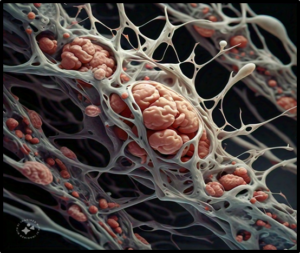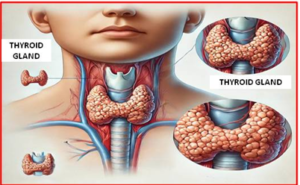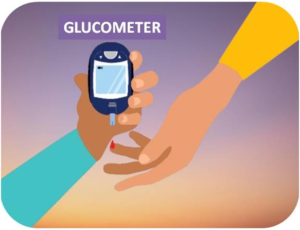
- Introduction
- Overview of drug development
- The role of Artificial Intelligence (AI) in healthcare and pharmaceuticals
- The Traditional Drug Development Process
- Discovery and preclinical research
- Clinical trials phases I-IV
- Regulatory approval and commercialization
- Challenges in traditional drug development (time, cost, success rates)
- AI in Drug Discovery
- How AI identifies new drug targets
- AI in molecular screening
- Predicting drug-protein interactions
- Accelerating the discovery of new compounds
- AI in Preclinical Research
- AI for predicting drug toxicity
- Enhancing pharmacokinetics and pharmacodynamics models
- Reducing the need for animal testing
- AI in Clinical Trials
- AI-driven patient recruitment and trial design
- Personalized medicine and AI
- Monitoring patient outcomes with AI-powered tools
- Reducing trial durations and costs
- AI in Drug Repurposing
- Finding new uses for existing drugs
- Case studies: Successful examples of drug repurposing using AI
- AI and Predictive Analytics in Drug Development
- Predicting drug efficacy and safety
- Machine learning models for patient outcomes
- AI in Regulatory Affairs and Drug Approval
- AI in submitting and evaluating clinical trial data
- Automating regulatory compliance processes
- Challenges and Limitations of AI in Drug Development
- Ethical concerns in AI-driven drug discovery
- Data privacy and security
- Ensuring the transparency of AI models
- Overcoming regulatory hurdles
- Future Prospects of AI in Drug Development
- The potential for AI-driven personalized medicine
- AI’s role in tackling global health challenges
- Collaboration between AI startups and pharmaceutical giants
- Conclusion
- Recap of AI’s impact on drug development
- Looking ahead: The evolving role of AI in medicine
Section 1: Introduction
Artificial Intelligence in Drug Development: Revolutionizing the Future of Medicine
The healthcare industry has witnessed tremendous technological advancements in recent years, with Artificial Intelligence (AI) emerging as a transformative force in various sectors, including diagnostics, personalized medicine, and drug development. AI’s ability to process vast amounts of data, identify patterns, and generate predictive models is proving to be particularly impactful in the pharmaceutical industry, where drug discovery and development are often lengthy, expensive, and fraught with challenges.
In traditional drug development, the journey from initial discovery to market approval can take over a decade and cost billions of dollars. Moreover, the failure rate in clinical trials remains high, with only a small percentage of candidate drugs making it to the finish line. This inefficiency poses significant challenges for the pharmaceutical industry and patients in need of new and effective treatments. Here, AI offers a promising solution by streamlining and enhancing various stages of drug development, from early discovery to post-market monitoring.
The role of AI in drug development is multifaceted. It can accelerate the identification of promising drug candidates, optimize clinical trial processes, reduce costs, and increase the likelihood of success. By harnessing the power of machine learning algorithms, AI can predict how molecules will interact with biological targets, analyze clinical trial data in real-time, and even repurpose existing drugs for new therapeutic uses. As AI continues to evolve, its integration into drug development processes is expected to revolutionize the pharmaceutical landscape and improve patient outcomes worldwide.
In this comprehensive exploration, we will delve into how AI is transforming drug development, the challenges and limitations it faces, and the future prospects of AI-driven pharmaceuticals.
Section 2: The Traditional Drug Development Process
Before understanding the impact of AI in drug development, it is crucial to comprehend the traditional process, which is time-consuming and costly.
- Discovery and Preclinical Research: The initial phase of drug development involves the discovery of new therapeutic compounds. Researchers identify disease targets (such as proteins or genes) that are associated with a particular illness. Once potential drug molecules are identified, they undergo preclinical testing, which involves laboratory and animal studies to assess the compound’s safety and efficacy.
- Clinical Trials (Phases I-IV): If a drug shows promise in preclinical studies, it enters human clinical trials, which are divided into four phases:
- Phase I: Tests safety and dosage in a small group of healthy volunteers.
- Phase II: Evaluates the drug’s efficacy and side effects in a larger group of patients.
- Phase III: Confirms the drug’s effectiveness, monitors side effects, and compares it with existing treatments in an even larger patient population.
- Phase IV: Conducted after the drug is approved, Phase IV trials monitor the drug’s long-term effects and ensure it remains safe and effective for widespread use.
- Regulatory Approval and Commercialization: After successfully completing clinical trials, the drug must be submitted to regulatory authorities (such as the U.S. FDA or the European Medicines Agency) for approval. This process requires thorough documentation, and any discrepancies can delay the approval process. Once approved, the drug is manufactured and distributed for commercial use.
- Challenges in Traditional Drug Development: Traditional drug development is fraught with challenges, including:
- Time and Cost: The average time to develop a new drug is 10-15 years, and costs often exceed $2.6 billion.
- High Failure Rates: Only about 10% of drugs that enter clinical trials ever make it to the market.
- Regulatory Complexities: Navigating the regulatory landscape is complex and requires extensive documentation and compliance.
Section 3: AI in Drug Discovery
One of the most significant areas where AI is making an impact is in the discovery of new drug compounds. The traditional discovery process is labor-intensive and relies heavily on trial-and-error. AI, however, can drastically speed up this process by sifting through vast amounts of data and identifying potential drug candidates more efficiently.
- AI for Identifying New Drug Targets: AI can help researchers identify novel biological targets (proteins or genes associated with disease). Machine learning algorithms analyze genomic, proteomic, and metabolomic data to predict which targets are most likely to respond to therapeutic interventions.
- AI in Molecular Screening: Virtual screening is another area where AI excels. AI models can predict the likelihood that a given molecule will bind to a target of interest. These models use information about molecular structures and biological interactions to sift through vast chemical libraries and identify the most promising candidates for further testing.
- Predicting Drug-Protein Interactions: AI-powered simulations can predict how a drug will interact with proteins at the molecular level, which is critical in understanding both the efficacy and potential side effects of a compound. These simulations help reduce the time spent on trial-and-error experiments.
- Accelerating the Discovery of New Compounds: AI systems can analyze large datasets from previous drug discoveries to identify patterns and correlations that might lead to the development of new drug compounds. For instance, deep learning techniques can be applied to predict which compounds will have therapeutic potential, significantly reducing the time needed to identify viable candidates.







1 thought on “Artificial Intelligence in Drug Development”
Your approach to nutrition is so refreshing. I appreciate the focus on whole foods and balance!